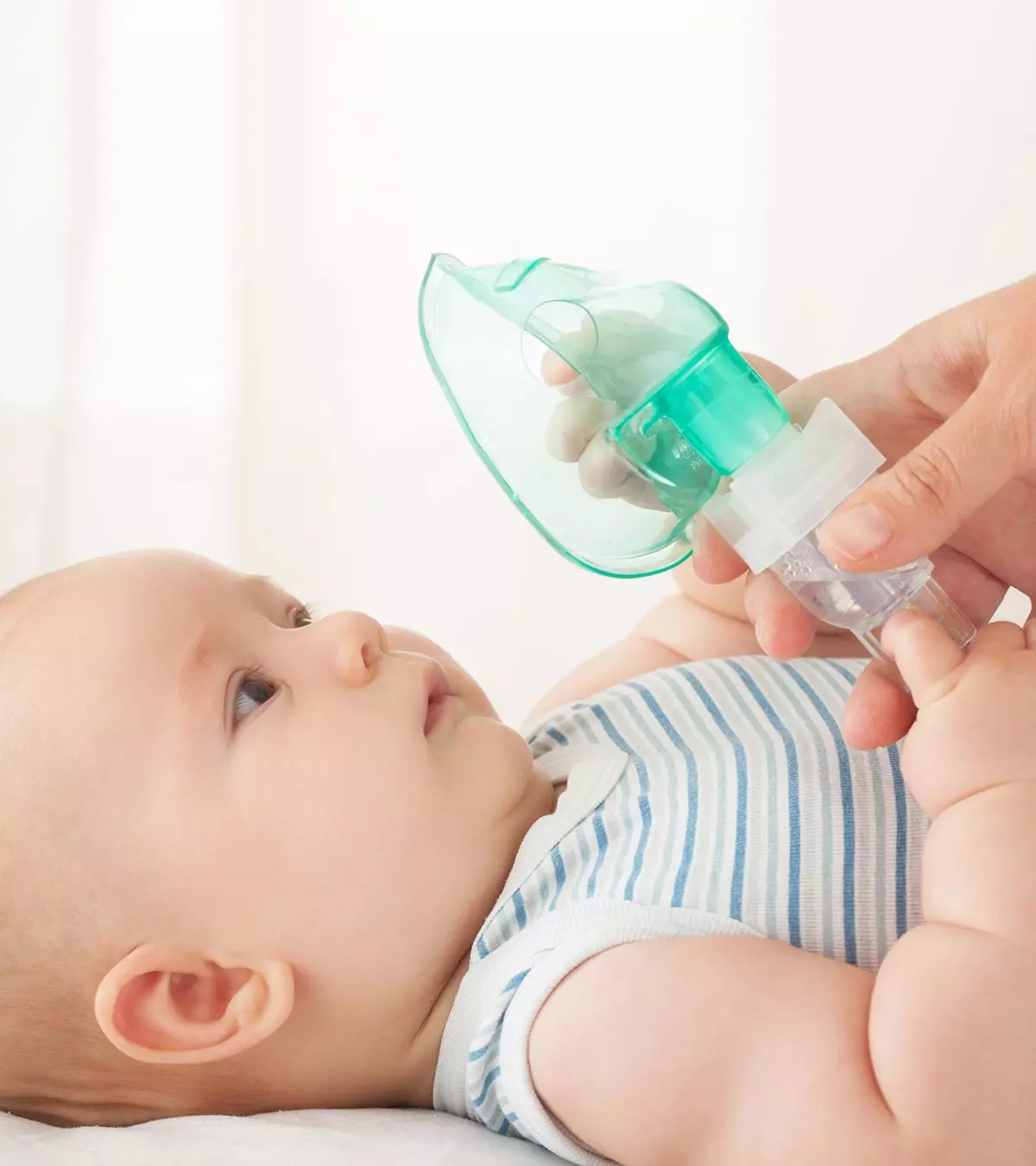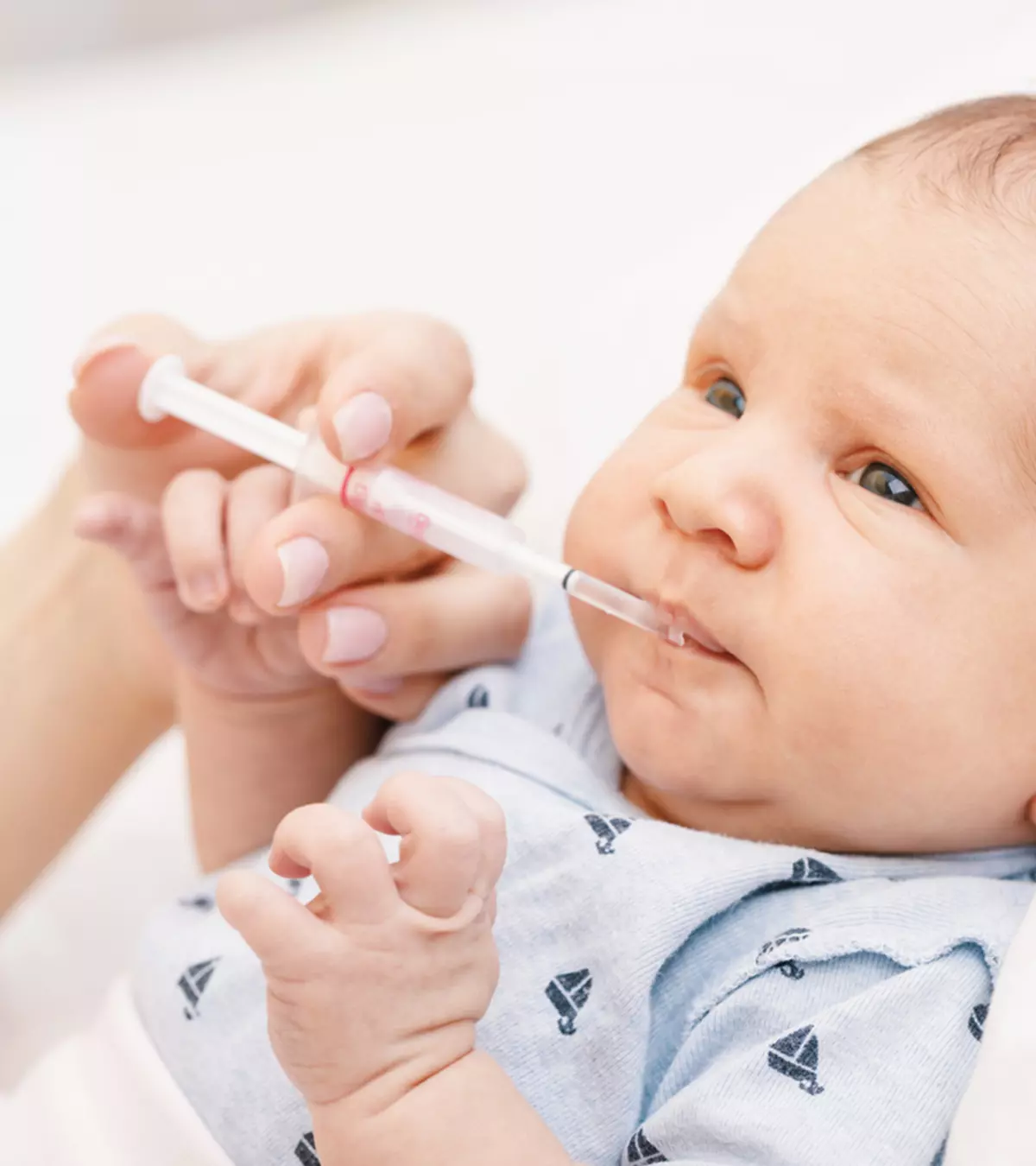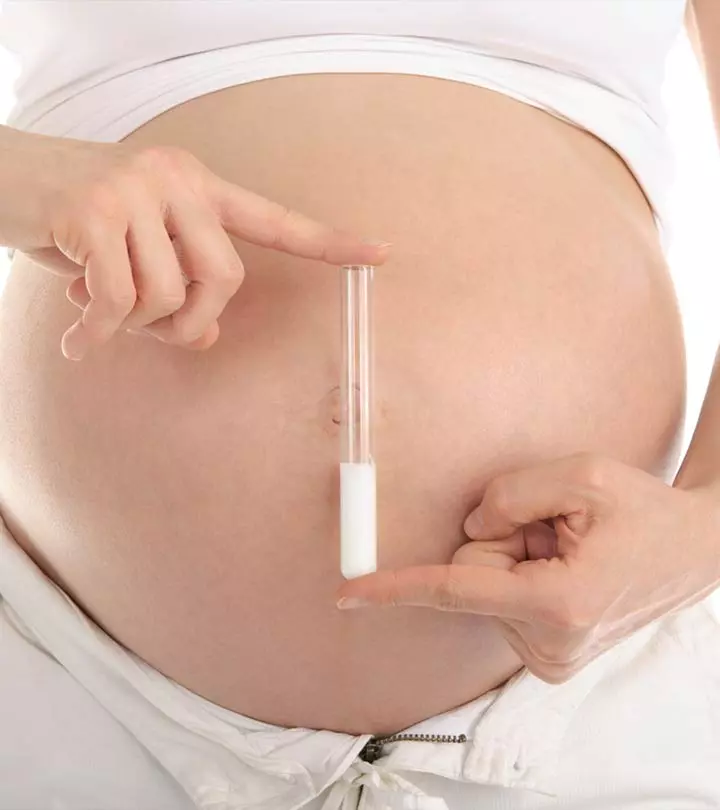
Image: iStock
Vaginal sex is considered safe during pregnancy unless suggested otherwise by your gynecologist. A doubt may arise as to what happens to the semen or sperm during pregnancy. You may also have concerns regarding its effect on the growing fetus. Unprotected sex and semen have no adverse effects in non-complicated pregnancies.
This post talks about where sperm goes during pregnancy and whether it affects you or your baby.
Key Pointers
- Sperm entering the vagina during pregnancy is usually discarded from the vaginal opening.
- The mucus plug, which covers the amniotic sac, prevents the entry of sperm into the uterus.
- The immune-tolerance-inducing substances in sperm may benefit a mother’s immune system.
- Consult your doctor to learn if unprotected sex is safe during pregnancy.
Where Does The Sperm Go If You Are Already Pregnant?
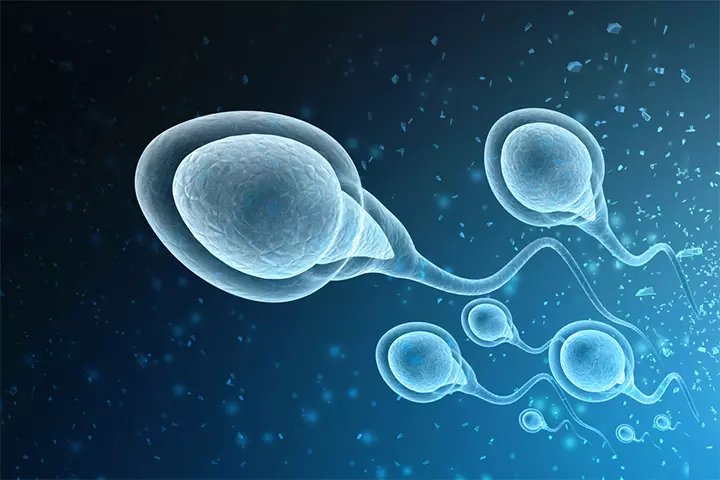
Your baby is floating inside an amniotic sac protected by the amniotic fluid, and the cervix is covered with a mucus plugiJelly-like mucus that seals the cervix during pregnancy and protects the fetus from infections. . Semen with sperms deposited in the vagina will be denied entry by the mucus plug and eventually come out of the body via the vaginal opening. The mucus plug is intended to keep bacteria or other potential sources of infection away from the uterus, and the same applies to semen (1).
 Quick fact
Quick factCan Sperm Reach The Baby Or Cause A Second Pregnancy?
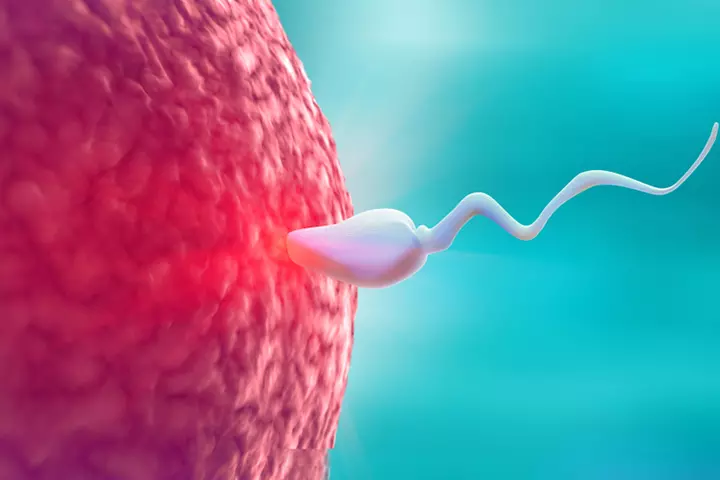
The penis cannot penetrate far enough to reach the fetus, so there’s no way for the sperm to reach the fetus (2). The conception of a second child during pregnancy is known as superfetation. It may happen in some mammals but is an extremely rare phenomenon in humans, with less than ten cases reported in medical literature up to 2008 (3).
The cases of superfetation were observed in in vitro fertilization (IVF) pregnancy, pregnancy with artificial insemination treatment, and surrogacy (4).
When you are pregnant, the hormonal levels change to support the pregnancy or gestation and not ovulation. Therefore, the ovum is not released, and the mucus plug already prevents the entry of sperm. Additionally, the hormone levels are not conducive to implantation if the sperms find their way to an ovum by chance (5).
Is Sperm Safe For Pregnancy?
According to the American College of Obstetricians and Gynecologists (ACOG), unprotected sex and sperm are considered safe in a normal, uncomplicated pregnancy. Obstetrician and gynecologist Dr. Shashwat Jani explains, “When sperm enters a pregnant woman’s body, it does not harm the pregnancy or the developing baby. The cervix produces mucus that blocks sperm from reaching the uterus. Even if some sperm do get through, the immune system eliminates them as foreign substances. The placenta also acts as a barrier, protecting the fetus from external substances. There is no risk of fertilization or harm to the baby from sperm during pregnancy.”
You may experience little cramps or spotting after sexual activity during pregnancy (6). However, you may need to consult your doctor if
- There are any conditions or risks associated with your pregnancy, such as preterm laboriA pregnancy complication when the labor begins before 37 weeks of gestation, resulting in premature birth of the baby and pelvic inflammatory diseaseiA bacterial infection or inflammation of the female reproductive organs, including uterus, ovaries, vagina, and fallopian tubes. (7)
- You’re at risk of antepartum hemorrhageiBleeding from or into the genital tract that occurs between 24 weeks of gestation and childbirth. due to placenta previaiPregnancy-related condition when the placenta lies very low in the uterus and covers all or part of the opening to the cervical opening of the vagina. (7)
- You feel persistent pain or have bleeding during or after sexual activity (6)
Unprotected intercourse and exposure to sperm during pregnancy from an infected partner may increase the risk of sexually transmitted infectionsiInfections caused by bacteria, virus, fungus, or a parasite transmitted through sexual activity. (STIs). During pregnancy, you are more prone to infections, and some of them may be dangerous for both mother and the growing fetus. It may eventually increase the risk of premature birthiIt refers to the birth of a baby before 37 weeks of pregnancy. or spontaneous abortioniUnexpected loss of a pregnancy before the 20th week of gestation. (miscarriage), and may cause uterine infection after childbirth (6). You may even pass STIs, such as syphilis to your unborn baby which crosses the placenta. While, your newborn may catch the STIs such as gonorrhea and genital herpes at birth (6).
Some of the health risks associated with the passing of STI in babies include (6):
- Low birth weight
- Pneumonia
- Blood infection
- Eye infection
- Liver problems like acute hepatitis or chronic liver disease
- MeningitisiInfection or inflammation of the fluid and membranes around the brain and spinal cord.
- Brain damage
- StillbirthiWhen the baby dies after 28 weeks of pregnancy, but before or during birth.
However, the risk of STI during pregnancy decreases if (8):
- Your partner is monogamous (having one sexual partner) and has been tested negative for STIs.
- You use protection, such as condoms, every time you have penetrative sex.
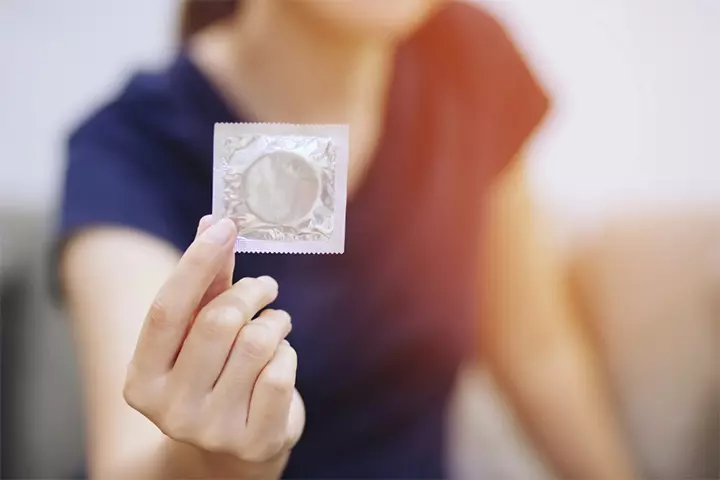
Is Semen Beneficial To Pregnancy?
Experts have reported some potential benefits of sexual activity and sperm during pregnancy. Semen may benefit pregnancy in the following ways.
- Semen contains many protective and immune-tolerance-inducing substances that modulate the maternal immune system. Extensive paternal sperm exposure (exposure to sperm of one particular person) for more than 12 months pre-pregnancy may decrease the risk of preeclampsia in pregnancy, a condition characterized by sudden high blood pressure and protein in the urine (9) (10).
- Human semen contains prostaglandins (hormone-like substances) that may ripen the cervix and help in inducing labor. Additionally, sperm and sexual intercourse may produce a physical stimulation in the lower uterus and cause the release of the hormone oxytocin, a major hormone involved in labor, due to orgasm. So, sometimes, penetrative sex is suggested as a method of starting labor in uncomplicated pregnancies, though more extensive research is required in this area (11).
- Orgasms release endorphins, which boost your mood and happiness while helping you bond with your partner emotionally (12).
- According to the anecdotal cultural beliefs in Malawi and South Africa the sound of a man releasing sperm inside the womb, may energize the baby in the womb. They also believe that sperm contains nutrients that helps in the growth and development of the growing baby during pregnancy (13). However, it is important to note these are cultural beliefs and do not have any scientific evidence.
 Trivia
TriviaDespite the benefits of semen, it is important to remember that each pregnancy is different. Therefore, consult your healthcare provider for any concerns and doubts.
Frequently Asked Questions
1. Can I develop a sperm allergy when pregnant?
Although very rare, some women may develop a sperm allergy called seminal plasma protein allergy (SPPA). Women with SPPA may have an immune reaction to semen, causing various symptoms, including inflammation, itching, and anaphylaxis (15).
2. How long does sperm stay in a pregnant woman?
Studies reveal that strong sperm motility may be found in the woman’s cervix for up to five days (16).
3. Can too much sperm affect pregnancy?
Although sperm volume is unlikely to affect pregnancy, engaging in frequent intercourse may cause discomfort during pregnancy. Therefore, consider the safety aspects and your health status and speak to your doctor if you have any further concerns regarding sperm during pregnancy.
Many women feel apprehensive about engaging in sexual activities due to various fears and doubts, such as where sperm goes during pregnancy and if having sex harms my fetus. In addition, health concerns such as morning sickness, altered libido, and weakness could also make you disinterested in having sex when pregnant. Nonetheless, sexual intercourse and sperm are considered safe while pregnant unless you have complications. However, for some women, a doctor may advise staying away from sex if they have pregnancy-related complications such as placenta previa, infections, amniotic fluid leakage, or excessive bleeding.
Infographic: Superfetation vs Superfecundation
What are superfetation and superfecundation? Our infographic will help you understand these pregnancy phenomena with ease. Take a print and pin this infographic if you feel you might want to share it with a friend with similar questions.
Some thing wrong with infographic shortcode. please verify shortcode syntax
Illustration: Where Does Sperm Go During Pregnancy? Is It Safe?
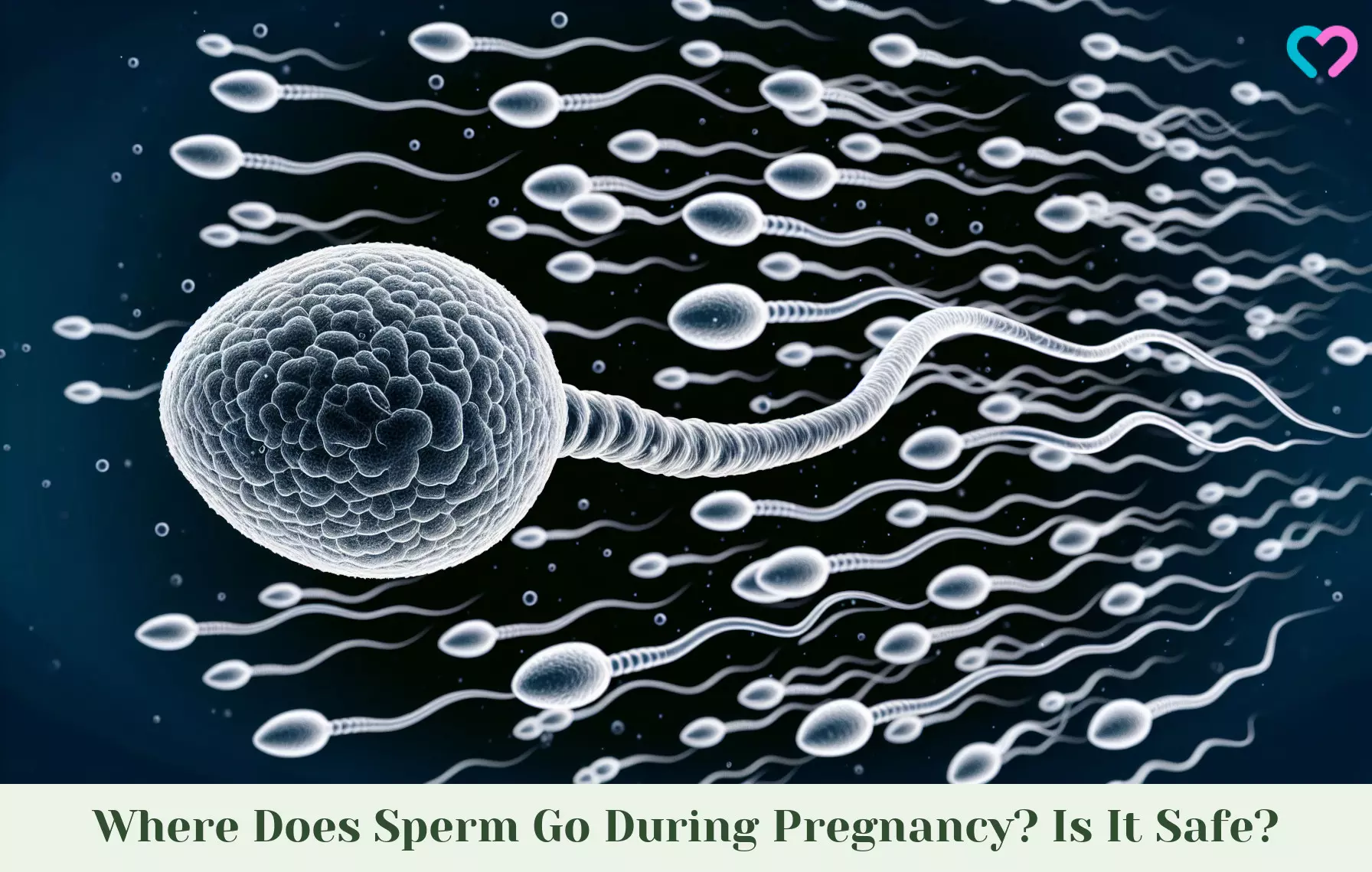
Image: Dall·E/MomJunction Design Team
References
- Mucus Plug.
https://americanpregnancy.org/healthy-pregnancy/labor-and-birth/mucus-plug/ - Sex during pregnancy: questions and concerns.
https://www.nct.org.uk/information/pregnancy/wellbeing-and-lifestyle-pregnancy/sex-during-pregnancy - O. Pape et al.; Superfetation: Case report and review of the literature.
https://www.sciencedirect.com/science/article/abs/pii/S0368231508002238?via%3Dihub - Superfetation.
https://my.clevelandclinic.org/health/diseases/24590-superfetation - Reshef Tal and Hugh S. Taylor; (2025); Endocrinology of Pregnancy.
https://www.ncbi.nlm.nih.gov/books/NBK278962/ - Is it safe to have sex during pregnancy?
https://www.acog.org/womens-health/experts-and-stories/ask-acog/is-it-safe-to-have-sex-during-pregnancy - Claire Jones et al.; (2011); Sex in pregnancy.
https://pmc.ncbi.nlm.nih.gov/articles/PMC3080531/// - How to Prevent Sexually Transmitted Infections (STIs).
https://www.acog.org/womens-health/faqs/how-to-prevent-stis - Daniele Di Mascio et al.; (2025); Type of paternal sperm exposure before pregnancy and the risk of preeclampsia: A systematic review.
https://pubmed.ncbi.nlm.nih.gov/32544753/ - Louise C. Kennyand Douglas B. Kell; (2018); Immunological Tolerance Pregnancy and Preeclampsia: The Roles of Semen Microbes and the Father.
https://www.ncbi.nlm.nih.gov/pmc/articles/PMC5758600/ - Josephine Kavanagh et l.; (2001); Sexual intercourse for cervical ripening and induction of labour.
https://www.ncbi.nlm.nih.gov/pmc/articles/PMC7017007/ - Is Sex Safe During Pregnancy?
https://americanpregnancy.org/healthy-pregnancy/is-it-safe/sex-and-pregnancy/ - Julia H Ryan et al.; (2025); Sexual Attitudes, Beliefs, Practices, and HIV Risk During Pregnancy and Post-delivery: A Qualitative Study in Malawi, South Africa, Uganda, and Zimbabwe.
https://pmc.ncbi.nlm.nih.gov/articles/PMC8840901/ - Mucus Plug.
https://my.clevelandclinic.org/health/symptoms/21606-mucus-plug - B G Ludman; (1999); Human seminal plasma protein allergy: a diagnosis rarely considered.
https://pubmed.ncbi.nlm.nih.gov/10438079/ - S.S. Suarez and A. A. Pacey; (2006); Sperm transport in the female reproductive tract.
https://academic.oup.com/humupd/article/12/1/23/607817?login=false
Community Experiences
Join the conversation and become a part of our nurturing community! Share your stories, experiences, and insights to connect with fellow parents.
Read full bio of Dr. Shashwat Jani
- Dr. Shashwat Jani is a consultant obstetrician & gynecologist in Smt. N.H.L. Municipal Medical College, Ahmedabad. He has 14 years of experience with a special interest in high-risk pregnancy, infertility, and endoscopy.
 Dr. Shashwat Jani is a consultant obstetrician & gynecologist in Smt. N.H.L. Municipal Medical College, Ahmedabad. He has 14 years of experience with a special interest in high-risk pregnancy, infertility, and endoscopy.
Dr. Shashwat Jani is a consultant obstetrician & gynecologist in Smt. N.H.L. Municipal Medical College, Ahmedabad. He has 14 years of experience with a special interest in high-risk pregnancy, infertility, and endoscopy.
Read full bio of Dr. Joyani Das
Read full bio of Rebecca Malachi
Read full bio of Reshmi Das










